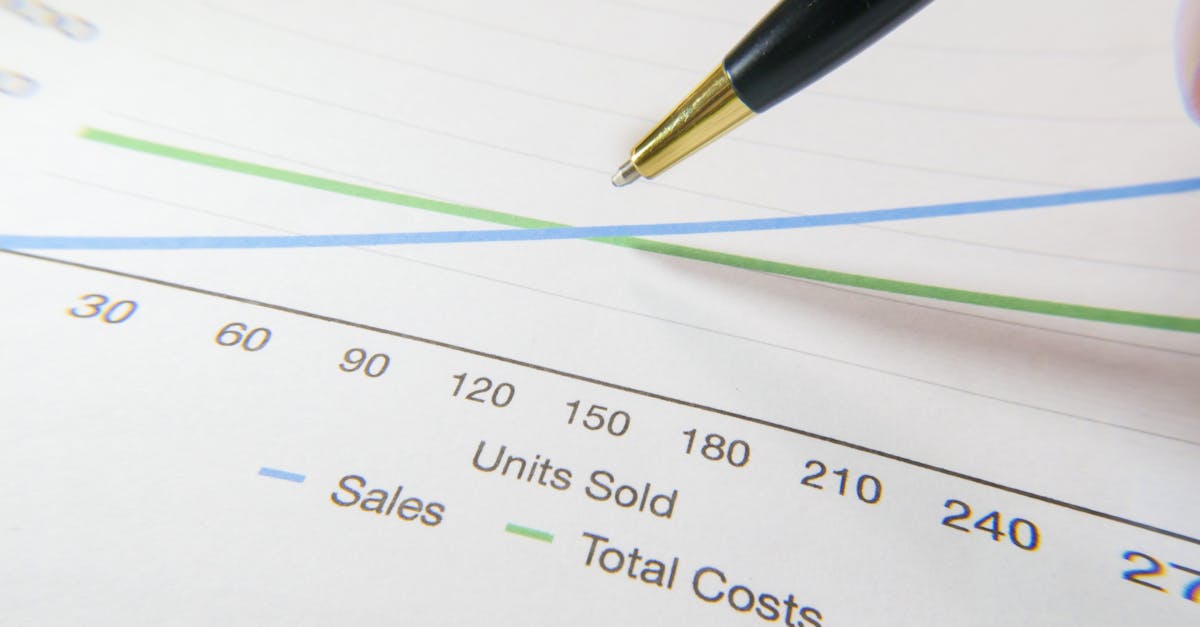Key Takeaways
- Automating marketing events streamlines planning, execution, and follow-up processes, reducing manual errors and saving time for strategic tasks.
- Automation tools enhance efficiency by managing guest lists, RSVPs, scheduling, ticketing, and post-event follow-ups seamlessly.
- Personalized attendee experiences improve with automated workflows like targeted emails, real-time updates during events, and interactive engagement features.
- Data analytics from event automation provide actionable insights on attendance trends and engagement metrics to refine future strategies.
- Overcoming challenges such as adoption resistance or data security concerns requires leadership support, structured training programs, and secure platforms with strong encryption protocols.
Marketing events are a powerhouse for driving engagement, but managing them can be overwhelming. From planning logistics to post-event follow-ups, the process often demands significant time and resources. Studies show that 68% of marketers struggle with event coordination due to manual processes—leaving little room for creativity or strategy.
Automation is changing the game. By streamlining tasks like scheduling, attendee tracking, and follow-up emails, we can focus on what truly matters: delivering impactful experiences. It’s not just about saving time; it’s about boosting efficiency while maximizing ROI. Let’s explore how automating marketing events transforms how we plan, execute, and measure success.
Why Automating Marketing Events Is Essential
Automating marketing events transforms how we manage every stage, from planning to follow-up. Relying on manual processes often results in missed details, miscommunication, and wasted time. With automation, these common issues are drastically reduced. Tasks like scheduling invitations or tracking RSVPs happen seamlessly without constant oversight.
Manual event management limits scalability. Coordinating multiple events across different locations becomes overwhelming when using spreadsheets or email chains. Automation tools handle repetitive tasks efficiently, allowing us to focus on strategy and creativity instead of logistics.
Data accuracy improves significantly with automation systems in place. Instead of juggling fragmented information across platforms, all data is centralized and updated in real-time. For example, attendee preferences or feedback can be collected during registration and used instantly for personalized experiences.
Follow-ups after an event are more effective with automated workflows. Sending thank-you emails or analyzing attendee engagement doesn’t require hours of effort anymore—it's done automatically based on pre-set triggers. This ensures no opportunity slips through the cracks while maintaining a professional touch.
Event automation also directly impacts ROI by optimizing resource allocation. Budgets stretch further when unnecessary expenses like last-minute changes or overtime labor are minimized through better planning and execution systems.
Integrating automation into marketing events isn’t just about saving time—it drives better outcomes at every level of the process.
Tools And Technologies For Event Automation
Automating marketing events requires the right tools to streamline planning, execution, and follow-up. Let’s explore some technologies that improve efficiency and drive results.
Event Planning Software
Event planning software simplifies managing multiple event aspects. Attendease helps us handle website creation, attendee registration, email communications, and scheduling. Its built-in analytics track performance metrics for better decision-making.
Eventify supports end-to-end management with live streaming, engagement tools like polls and Q&A sessions, networking options such as matchmaking features, customized ticketing solutions, and comprehensive analytics.
Eventbrite specializes in automating registration processes, ticket sales workflows, and mobile check-ins. With real-time tracking of attendance data and visual reporting options, we can analyze trends easily to enhance future events.
Execution Platforms
Execution platforms facilitate seamless event delivery. Advanced live-streaming features from tools like Hopin allow virtual attendees to participate in real-time while interactive elements foster engagement during sessions.
Platforms like Whova provide agenda management capabilities paired with robust networking features for both in-person and hybrid settings. Meanwhile, apps such as Bizzabo support on-site needs by integrating badge printing systems with QR code scanning for efficient attendee check-ins.
For larger-scale events or trade shows requiring exhibitor coordination or sponsor visibility enhancement options (e.g., branded spaces), these platforms cater effectively to operational demands without compromising user experiences.
Follow-Up And Analytics Tools
Post-event analysis shapes our strategies moving forward. Tools like HubSpot CRM automate follow-ups using personalized emails triggered by attendee actions during the event—boosting engagement rates effortlessly.
Analytics-focused services including Tableau Public, enable visualization of attendance patterns alongside demographic insights gathered via surveys linked directly into dashboards after programs conclude.
Steps To Automate Marketing Event Processes
Automating marketing events streamlines planning, execution, and follow-ups. It reduces manual errors, improves attendee engagement, and saves time for other strategic tasks.
Streamlining The Planning Phase
Guest management benefits greatly from automation. RSVP systems track responses in real-time, allowing us to adjust guest lists instantly. Features like personalized reminders or dietary preference requests save hours of administrative effort. For example, a tool like Eventbrite simplifies invitation tracking while keeping communication consistent.
Marketing and promotion gain efficiency through automated segmentation tools. These tools send targeted messages tailored to specific audience groups based on behavior or demographics. Social media platforms such as Hootsuite automate posts across channels, ensuring regular updates without constant oversight.
Automation also centralizes data collection during planning. Tools integrate registration forms with CRM systems to maintain accurate records of attendee preferences.
Enhancing Execution With Automation
During events, automation enhances coordination and delivery. Check-in processes become faster using QR code scanning or mobile apps like Whova that handle attendee registration on-site seamlessly. This eliminates long lines at the entrance.
Engagement tools like live polling apps encourage interaction during sessions by collecting feedback instantly. Platforms such as Hopin manage hybrid events by combining virtual participation with physical attendance under one system.
For logistics management, scheduling software automates session timing notifications sent directly to attendees' devices—reducing confusion about event agendas while maintaining smooth transitions between activities.
Simplifying Post-Event Follow-Up
Post-event workflows improve with automation tools designed for timely outreach and analysis. Automated email campaigns thank attendees or share post-event resources immediately after the event ends via platforms like Mailchimp.
Integration with analytics software offers insights into metrics such as attendance rates or engagement levels during sessions—helping refine future strategies effectively. HubSpot CRM connects this data back into marketing pipelines for nurturing leads generated at events.
Feedback collection is simplified through automated surveys sent shortly after the event concludes when impressions are still fresh in participants’ minds—boosting response rates significantly compared to manual methods.
Benefits Of Automated Marketing Event Processes
Automating marketing event processes brings measurable improvements across planning, execution, and follow-up stages. Efficiency, engagement, and insights are enhanced when automation replaces manual workflows.
Boost Efficiency And Productivity
Automation eliminates redundant work, making event management faster and more productive. Tasks like registration collection, ticketing, and invoice handling become seamless with automation tools. For example, automated systems simplify sending confirmation emails or tracking payments in real time.
Repetitive functions like invitations, reminders, and follow-ups are handled automatically. This shift allows us to concentrate on creativity rather than logistics. Integrated platforms streamline guest lists by replacing old paper-based methods with digital alternatives that track attendance instantly—saving hours of effort.
By automating such tasks end-to-end with tools built for precision and speed (e.g., Hopin), we gain the bandwidth to focus on strategies that drive impactful results instead of battling inefficiencies.
Improve Customer Engagement
Automated workflows enhance how attendees experience events from start to finish. Personalized emails tailored to preferences create excitement pre-event while reminder messages keep attendees informed without manual intervention.
During events, features like quick check-ins or live updates engage participants efficiently. For instance, automated mobile alerts about session changes or special announcements increase participation levels dynamically at large-scale conferences or trade shows.
Post-event communication is boosted through timely feedback requests sent via email sequences. Respondents feel valued as their input shapes future offerings—but we don’t lose valuable time managing these exchanges manually anymore.
Gain Actionable Insights
Automation provides data analytics that improve decision-making after every event. Real-time metrics include attendance breakdowns by demographics or session popularity—helping refine future plans based on attendee behavior trends effectively captured during operations.
Challenges And Solutions In Event Automation
Automating marketing events involves several challenges, but addressing them strategically can lead to significant benefits. Let's explore common hurdles and practical solutions.
Overcoming Adoption Barriers
Adopting event automation technologies remains a challenge for many organizations. Fewer than 50% of event professionals have automated six or more processes, showing the hesitation to embrace these tools fully. Securing leadership support is vital in overcoming this resistance. When executives back automation initiatives, it fosters confidence across teams and simplifies implementation.
Training plays a key role here as well. Teams unfamiliar with automation systems benefit greatly from structured training programs tailored to their roles. For instance, providing hands-on sessions for marketing staff ensures they understand how to use RSVP tracking tools or scheduling software effectively.
Pilot programs offer another effective strategy. Testing automation within specific departments provides measurable outcomes that demonstrate its value convincingly. For example, piloting automated attendee registration in one event can showcase time savings and improved accuracy compared to manual methods.
Ensuring Data Security And Privacy
Data security often emerges as a major concern when automating events. With sensitive attendee information at stake—such as names, contact details, and preferences—protection becomes critical to maintain trust.
Using secure platforms with strong encryption protocols minimizes risks significantly. Many modern event management tools are equipped with compliance certifications like GDPR or CCPA alignment, adding an extra layer of protection for data handling.
Access controls also strengthen security measures by limiting who can view or edit sensitive data within the system. This approach reduces potential vulnerabilities while maintaining operational efficiency.
Regular audits help identify loopholes before they become issues. Periodic checks on software configurations and user access rights ensure continued safety without disrupting workflows during busy planning phases.
Conclusion
Automating the planning, execution, and follow-up of marketing events is no longer a luxury—it's a necessity for staying competitive. By embracing automation, we can streamline complex processes, improve attendee experiences, and unlock valuable insights that drive future success.
The right tools and strategies empower us to work smarter while focusing on creativity and innovation. As we continue adopting these technologies, we're better positioned to deliver impactful events that maximize efficiency, engagement, and ROI.
Frequently Asked Questions
What are the main challenges marketers face in managing events?
Marketers often struggle with coordination due to manual processes, which impact creativity and strategy. Common issues include missed details, miscommunication, and inefficiencies in scheduling and follow-ups. These challenges limit their ability to deliver impactful experiences.
How does automation help streamline event management?
Automation simplifies tasks like scheduling, RSVP tracking, and follow-up communication. It eliminates redundant processes, reduces human error, and centralizes data for real-time updates. This allows marketers to focus on creativity while improving efficiency and ROI.
What are the benefits of automating marketing events?
Automation improves productivity by eliminating manual tasks such as registration collection. It enhances attendee experiences with personalized communication and quick check-ins while providing real-time analytics for actionable insights that refine future strategies.
Which tools are essential for automating marketing events?
Event planning tools like Attendease simplify registration and website creation. Execution platforms like Hopin manage event delivery, while CRM tools like HubSpot enhance post-event engagement through analytics and feedback collection.
How can automation improve guest management during events?
Real-time RSVP tracking ensures accurate attendance counts, while automated reminders keep attendees informed. Check-in processes are streamlined with faster workflows, creating a seamless experience for both organizers and guests.
What steps should be taken to implement event automation successfully?
Start with pilot programs to demonstrate value. Secure leadership support by showcasing measurable outcomes. Provide team training on new tools and address concerns about data security using strong encryption methods.
Are there any risks associated with adopting automation technologies for events?
Challenges include resistance from teams unfamiliar with technology or concerns about data privacy. To mitigate risks, use secure platforms with access controls and conduct regular audits to ensure sensitive information is protected.
Can automation personalize attendee experiences during events?
Yes! Automation enables targeted communications based on attendee preferences through segmentation tools. Real-time updates ensure personalized interactions during the event for enhanced engagement.
How does automation contribute to better ROI in marketing events?
By saving time on repetitive tasks and optimizing resources efficiently, automation drives higher productivity. Real-time analytics provide insights that help refine strategies, leading to improved outcomes and maximized ROI over time.
Why is leadership support crucial when transitioning to automated processes?
Leadership backing ensures sufficient resources are allocated for implementing new systems smoothly. It also helps overcome internal resistance by validating the importance of automation within the organization’s broader objectives.






